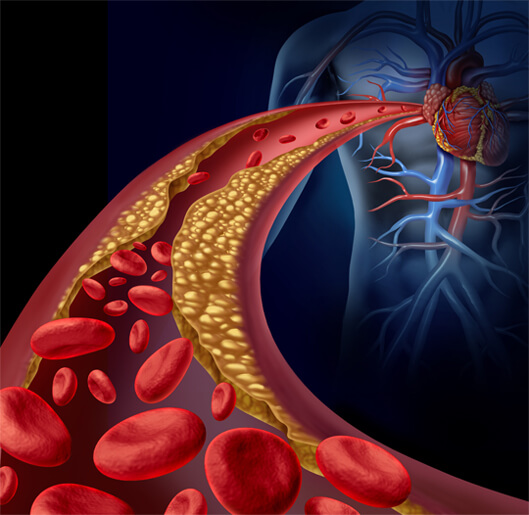
cardiovascular system
Important to know about our cardiovascular system
- Red blood cells (erythtrocytes), these are 99% responsible for the oxygen supply and the discharge of carbon dioxide to the lungs. they live 120 days
- A lack of vitamin B12 intake can lead to huge amounts of abnormally large red blood cells being produced
- White blood cells (leukocytes) are located in the blood and lymphatic tissue. Once an infection is recognized, the body creates more white blood cells to protect itself from it. They defend the body against infections with foreign substances and invaders. White blood cells are therefore crucial for the defense against pathogenic microorganisms, such as bacteria, viruses, parasites, fungi and yeasts. In addition, they help to clean up dead cells in the body.
- Neutrophil granulocytes: 40% to 75% of white blood cells. These are involved in the immune response and the absorption/eating of bacteria and fungi, for example.
- Eosinophile granulocytes: 1% to 2%. These so-called eos are involved in the destruction of parasites and allergic reactions.
- Basophilic granulocytes: less than 1% of these cells are involved in inflammatory reactions.
- Lymphocytes: make up 20% to 40% of the white blood cells in the blood, are involved in recognizing and fending off non-body substances (antigens).
- Monocytes: the largest white blood cells. 2 to 10%. They can kill infected cells, and clean up dead or damaged tissue.
- Thrombocytes are also called platelets and cause the clotting of our blood. If a blood vessel wall is damaged, the platelets will stick to the damaged spot. Also, the platelets can stick together, this is called aggregating. Eventually, a clot is formed which allows the vascular wall to recover.
- In case of a shortage of platelets, bleeding can be more easily caused by the failure to repair damage to the vascular wall. Complaints consist mainly of many bruises that arise easily.
- An increase in platelets (thrombocytosis) is a reaction to a condition, such as bleeding, iron deficiency, infection or the result of surgery/intake of certain drugs.
- Blood plasma About half of the human blood in the body is plasma. Plasma is a yellow liquid that consists of 91.5% water and 8.5% of proteins (such as antibodies, clotting factors and albumin), salts, fats and sugars. Plasma serves as a means of transport for glucose, lipids, hormones, carbon dioxide and oxygen. In addition to transport, blood plasma allows heat (and coolness) to spread within the human body. In this way, the blood ensures that the body stays warm or cools down.
Our cardiovascular system is our distribution system and responsible for the transportation of:
– oxygen
– building blocks
– energy
– nutrients
– hormones
– moisture
– white blood cells
– temperature managment
– waste transport
This network is powered by our heart. The red blood cells are, as it were, the couriers. Most problems arise from contaminated (clogged) blood vessels, which can cause high blood pressure, reduced circulation. In addition, the quality of the vascular walls is very important, because of the vascular walls the cells are supplied. Problems rarely arise suddenly but are the result of years of process. If blood circulation decreases, this means that all the bodily functions that depend on it will become less functioning.
Every 120 days we have completely new red blood cells. The quality of the red blood cells is largely determined by our diet (the building blocks). The elasticity of the vascular walls depends on our quality of food. Most medications are aimed at intervening by lowering pump pressure, reducing the number of liters of blood pumped per minute, lowering the pumping capacity of the veins, diluting the blood and lowering the number of liters of blood. The problem with this is that the body systems are less well supplied and can no longer function optimally. The Cardio Recovery package contains formulas and ingredients to support the quality of heart, blood, and blood vessels. The diet and lifestyle is of great importance for good blood circulation.
What suits you, what do you need?
You are interested but do not know which products suit you best?
Fill in the questionnaire and we will send you a free proposal by e-mail with a brief explanation.
Since 2000 we are practicing naturopathy. We will handle your information with utmost confidentiality in accordance with privacy legislation and NEVER share this information with third parties.

